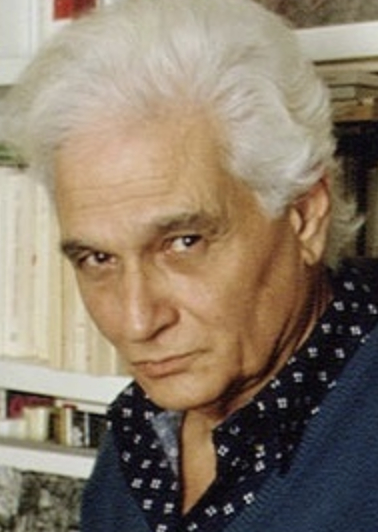On this date in 1930, philosopher Jacques Derrida was born in El Bair, French Algeria, to a Sephardic Jewish family. Subjected to the Vichy regime’s oppressive “Jewish laws,” Derrida’s high school studies were interrupted by World War II. In 1949 he moved to Paris to study philosophy at the prestigious École Normale Supérieure.
A prominent figure in the field of post-structural philosophy, Derrida was a pioneer of a method of semiotic analysis called “deconstruction,” perhaps best summarized as “a theory of reading which aims to undermine the logic of opposition within texts.” (A Dictionary of Critical Theory, 1996)
Derrida’s works responded to and deconstructed the Western metaphysical tradition, working in constant dialogue with major philosophical movements of the 20th century, including “Husserlian phenomenology, Saussurean and French Structuralism, and Freudian and Lacanian psychoanalysis” (Encyclopedia of Contemporary Literary Theory, 1993) A prolific writer, Derrida’s major works include Speech and Phenomena (1967), Of Grammatology (1967), Writing and Difference (1967), Margins of Philosophy (1972) and Acts of Literature (1991).
Religion and its constitutive philology was often subject to Derrida’s deconstructive turn. While Derrida writes, in “Circonfession” (1991), that he would “rightly pass” (je passe à juste titre) for an atheist, the guiding methodology for his work sought ultimately to challenge distinctions between labels like theist and atheist, believer and nonbeliever, and, more broadly, between loaded terms such as faith and reason.
For Derrida, the only “true believer” is one who “[knows] they run the risk of being radical atheists.” (Derrida and Religion: Other Testaments, 2004) It was this paradoxical view of religion, one which aimed to transcend the bounds of rigid, dogmatic faith as well as logic, that defined Derrida’s practice. (D. 2004)


